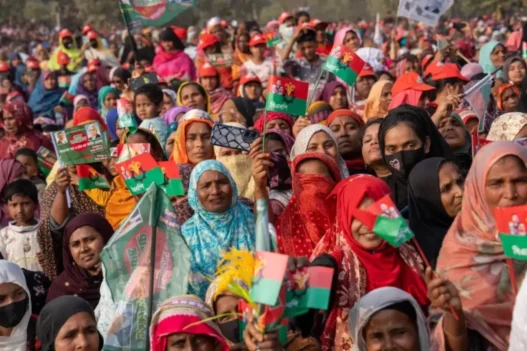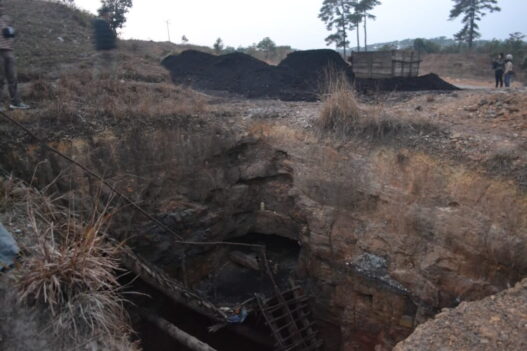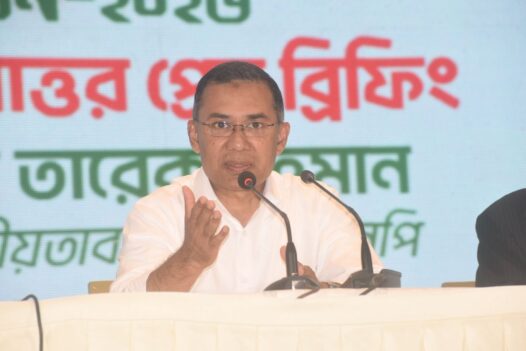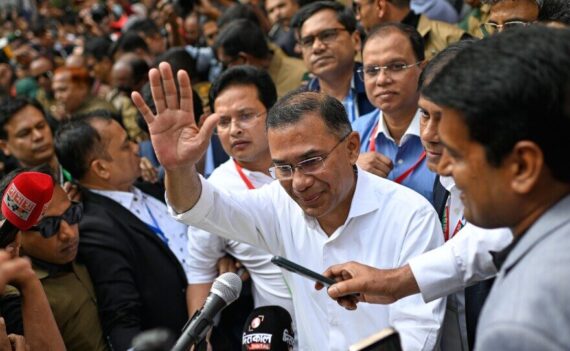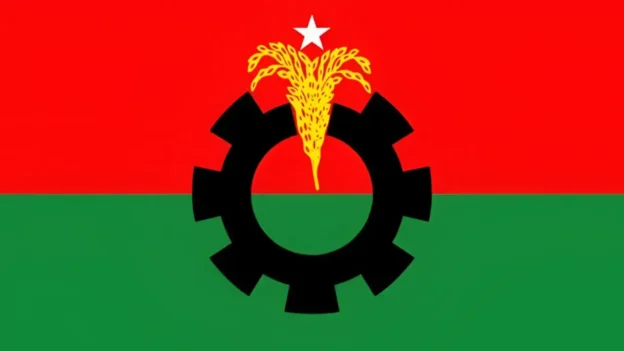By Sanjoy Kumar Barua
In the mist-clad embrace of Bandarban’s Chimbuk Hills, where the whispers of the forest echo through ancient valleys, a sacred narrative unfolds.
For the first time, the unparalleled courage and selflessness of Bangladesh’s seven Bir Sreshtho—the immortal heroes of 1971—find their voice in the melodious script of the Mro language, a tongue of resilience and timeless heritage.
This profound tribute comes from the hands of Younguang Mro, a devoted writer and guardian of his people’s history.

A son of the hills, hailing from the remote village of Byatya Para, Younguang poured seven years of soul and sweat into a slender, 24-page book that breathes life into the valor of those who shaped the destiny of a nation.
“When I first learned of these heroes,”
Younguang reflects, “I realized their stories remain untold to many of my people. Most Mro cannot read Bengali, and their heroism felt distant. I vowed to bring their light to our hills.”
The Bir Sreshtho—Munshi Abdur Rouf, Mohammad Ruhul Amin, Mohammad Hamidur Rahman, Mostafa Kamal, Matiur Rahman, Nur Mohammad Sheikh, and Mohiuddin Jahangir—are not mere names but luminous stars etched into Bangladesh’s sky.
Their deeds on the battlefield during the Liberation War exemplified courage beyond comprehension, earning them the nation’s highest gallantry award for their bravery and sacrifice.
Yet for the Mro, whose lives remain deeply tied to their ancestral ways, these heroes were but distant echoes until Younguang wove their tales into the rhythmic beauty of Mro script.
The Mro script itself is a story of resilience and vision.

In the 1980s, a young dreamer named Menlay Mro, born in the serene village now known as Kramadi Para, astonished his peers by declaring he would create a script for his people.
A recluse with an unquenchable thirst for wisdom, Menlay left school and vanished into the forests, where he meditated beneath ancient banyan trees.
From his solitude emerged not just an alphabet but also a spiritual path—Krama Dharma—a philosophy that celebrates infinite knowledge and harmony with nature.
Though Menlay disappeared at the age of 19, his legacy endures.
Today, Mro books, including Younguang’s latest masterpiece, are written in the script he crafted with devotion and vision.
Yangngan’s odyssey to tell the story of the seven heroes began in 2017.
Translating their lives from Bengali to Mro was an arduous journey; each word had to bear the weight of a nation’s history and echo with the pulse of its heart.
“Many Bengali words had no direct equivalent in our language,” Younguang shares, “so I sought guidance from elders and scholars to ensure every line resonated with authenticity.”
The result is a book titled Namo Tosen Kiak Mi, means Bir Sreshtho.

It is a bridge between cultures, a testament to the universal language of courage, and a gift to the Mro people, who now hold these stories in their own hands, in their own voice.
The book’s unveiling was a moment of collective pride.
Held in Bandarban hill town, the event also celebrated another marvel—an album of Menlay Mro’s artwork, painstakingly curated by Younguang over 17 years.
These 23 paintings, fragile remnants of Menlay’s genius, were restored and presented as a visual hymn to Mro heritage.
As the pages turned and the paintings gleamed, the gathering resonated with a shared reverence for the past and hope for the future.
“Language and culture are the soul of a people,” reflected Chittaranjan Joldas, a retired educator.
“The Mro have risen from the shadows to celebrate their identity, and this is a triumph for us all.”
Today, the Mro community stands as a testament to survival and spirit.
Numbering over 50,000, their lives remain entwined with the rhythms of nature and the wisdom of their forebears.
They honor Menlay Mro as a prophet, believing he will one day return to guide them again.
Through Younguang’s pen and Menlay’s vision, the stories of the seven Bir Sreshtho find a new home—not in the bustling cities of Bangladesh, but in the tranquil hearts of the hills.
Their bravery now sings through bamboo groves, flows with mountain streams, and rises with the dawn mist—a timeless tale of sacrifice, written in the language of the earth.
Source The Chittagong Hill Tracts


